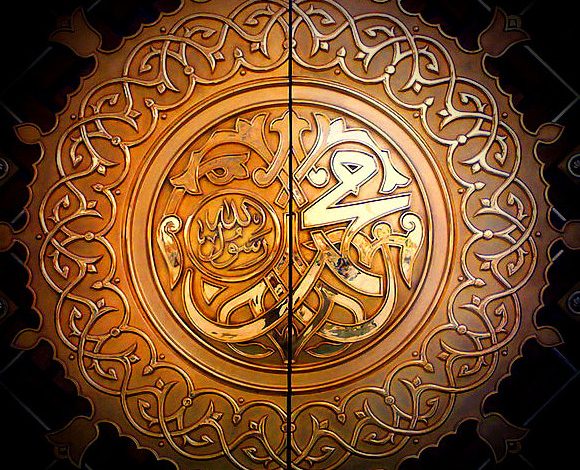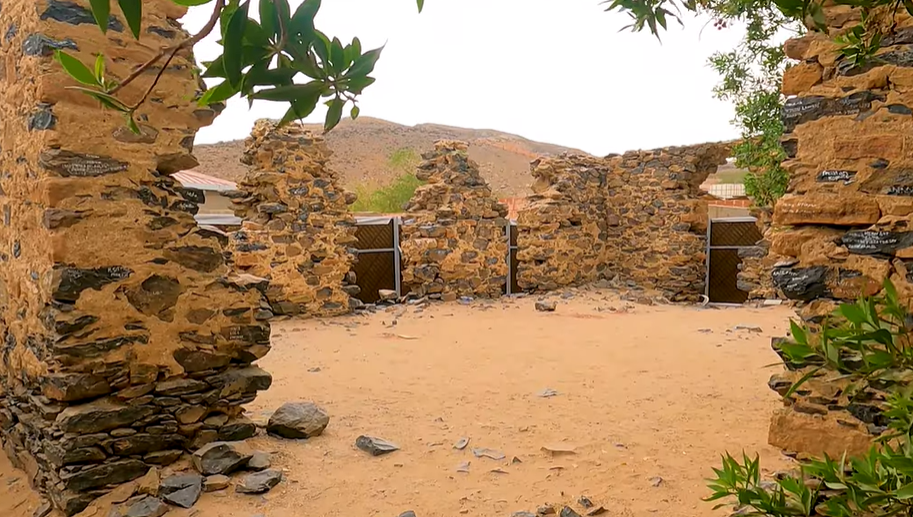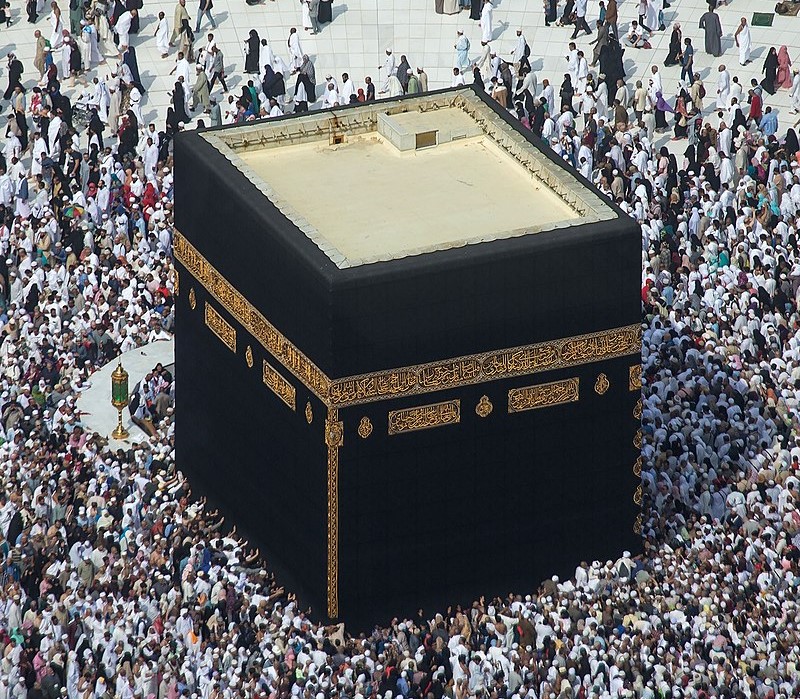Hazrat Muhammad (SW.) greatest Founder of Islam.
The family and lineage of Prophet Muhammad (sw.) play an important role in the history and culture of Islam.

Allah Almighty sent His message to Hazrat Muhammad (SW.). This message was revealed to Gabriel (AS) more than 23 years ago.The main religious book of Islam is the Quran because Muslims accept that this message
The arrival of Hazrat Muhammad (SW.):
Muhammad (SW.) began his life as a man among the Banu Hashim clan of the Quraysh tribe living in Mecca in 570. Abdullah ibn Abdul Muttalib ran a respectable business as the father of Muhammad (s.a.w.).
the other hand, Amina bint Wahhab bravely protected him as a mother. When Muhammad (SW.) was six years old, he became an orphan because his father died.
Muhammad (SW.) spent his youth under the care of his grandfather, Abdul Muttalib, and his uncle, Abu Talib. In his childhood, Muhammad demonstrated honesty, justice, and firmness toward others.

Watch the video on this topic- Prophet Muhammad -The greatest man in history.
Hazrat Muhammad (SW.) Revelation and Prophecy:
Around 610, the angel Gabriel appeared to the Prophet Muhammad (SW.) inside the cave of Hira and gave him the first divine command from God. He was then 40 years old. This revelation marked the beginning of Islam’s history.
In Mecca, Muhammad (SW.) began his mission to proclaim the Oneness of Allah and explain the significance of prophet hood. The polytheists of Mecca hindered Muhammad’s preaching and began to persecute him and his followers, yet he patiently continued preaching.
Read more- Brief Introduction and History of Islam.
Migration to Medina:
In 622, the Hazrat Muhammad (SW.) and his supporters were forced to flee to Medina due to unacceptable persecution by the Quraysh. Islamic history recognizes this movement as the Hijra. Islamic rule officially began in Medina after a new state was established through migration.
The foundation of an Islamic state was united:
Hazrat Muhammad (SW.) achieved tribal unity during his leadership in Medina by obtaining the ‘Certificate of Medina’. A peaceful and just state came into existence through the political agreement signed in Medina. The Quraysh of Mecca devoted their efforts to destroying the established Muslim state of Medina.

Conquest of Mecca:
Hazrat Muhammad (SW.) conquered the city of Mecca in 630 CE without any bloodshed. This event is known in history as the Conquest of Mecca (Arabic: فتح مكة fatḥ makkah). According to historians, the Conquest of Mecca is the greatest victory in the history of Islam.
This victory made it easier for the Muslims to conquer other areas of Arabia. In 630, the Muslims and the Quraysh reached an agreement by signing the ‘Treaty of Haydiya’.
Founder of the Islamic religion:
The Hazrat Muhammad (SW.) is considered by Muslims to be the most respected figure among all other individuals. Islamic history, combined with cultural tradition, deeply values his name and title.
Names and titles are categorized throughout the Quran and Hadith, and among these, Ahmad, Mahmud, Muhammad, Rasul, Nabi, Hadi, and Shafi are considered to be the main examples. The Holy Book describes these names as the Injila (Ahmad) and the Torah (Ahed).
Names that represent Asmaul Husna include Nur, Rahmat, and Karim. Other names and titles: Abul Qasim, Al-Amin, Mustafa, Karimun Naybin! Muhammad represents a person who is praised by people or who is worthy of praise and who receives positive recognition.
Ahmad: Meaning “highly praised”. Mahmud: Meaning “praised”. The multiple names and titles given to the Prophet Muhammad (SW.) reveal his valuable works and religious leadership in Islam.
Quran The Holy Book of Islam:
According to Muslim belief, the Quran emerges as the central religious text of Islam because it carries messages from God. During 23 years, the angel Gabriel disclosed the sacred message to Hazrat Muhammad (SW.).
The Quran contains guidance that Allah revealed to lead Muslims daily. Muslims consider the Qur’an a divine word because God used Gabriel to deliver messages to Prophet Muhammad.
He first memorized certain revealed sayings of Muhammad before his companions recorded them. As it stands today, the seventh-century compilation of the Quran represented the final form, which has not undergone any modifications afterwards.

Importance of the Quran:
All practices and activities of Muslim living stem from the central religious text known as the Quran. The book preserves Allah’s instructions and ethical rules and regulations for Muslim living principles.
Through the Qur’an, Muslims build a divine connection with God and organize their existence through laws of justice and religious commandments. All religious topics in the Quran cover Allah’s Unity with His Divine Attributes, the Prophet’s teachings and future End Times, all values and religious laws, plus historical stories with life advice.
Research shows the Quran is the title of the most translated religious book globally. This religious book has almost complete translations throughout the globe. Muslims maintain the original meaning of the Quran in Arabic, representing the most precise interpretation, while translations function to help understand the original words.
Hazrat Muhammad (SW.) Genealogy and Genealogy:
Hazrat Muhammad (SW.) established fundamental connections between Muslim history and Islamic culture through blood relations.
Historical records show Prophet Muhammad’s descent from Ismail (AS), who served as the firstborn son of Ibrahim (AS). Through his ancestry, he belongs to the Adnani tribe, which is further divided into the Hashemite branch from the Quraish dynasty.
According to some hadiths, Prophet Muhammad (SW.) presents his family tree to Ibrahim (AS) himself. Allah picked Ishmael (AS) among the descendants of Ibrahim (AS).
The hadith further states that Kianah emerged from Ishmael’s family line and that Quraysh descended from Kianah’s lineage, while Banu Hashim identified from Quraysh, who specifically transferred authority to Muhammad (SW.).
During the first phase of Islamic history, Muhammad (SW.) proclaimed his status as a prophet while attempting to establish the belief in Islam in Mecca. Through this time, Muslims endured harsh persecution as well as intense resistance from their antagonists.
Hazrat Muhammad (SW.) received his first divine revelation from God in the Hira cave when he reached 40 years old in 610. The Qur’an collected these sayings as it established the principle beliefs of Islam as a new religion.
From the beginning of his preaching career, Muhammad (SW.) declared the existence of one God and attacked the polytheistic beliefs of Mecca’s population.

The Early Era of Islam Hazrat Muhammad (SW.) Call and Early Response:
During the beginning stages of his mission, Muhammad (SW.) sought limited followers, mostly from his close family circle. As more and more people embraced his message, the elite members of Mecca began to express deep apprehension.
The teachings of Hazrat Muhammad (SW.) threatened their religious order, according to the leaders of Mecca, who started persecuting his followers. Followers of Muhammad (SW.) experience multiple forms of mistreatment, which include verbal abuse, product boycotts, and physical attacks.
The assassination attempt failed to harm Muhammad (SW.). All followers of Muhammad (SW.) exited from Mecca to Medina during the year 622. Following his migration to Medina, Muhammad (SW.) established an Islamic community and government, bringing all Muslims together.
Madina became peaceful after he brought its various tribal groups to peace, and Islam started to move outward in influence. The beginnings of Islam created essential aspects that form the basis of Islamic religious practice. The unwavering belief combined with the sacrificial efforts of Muhammad (SW.) and his followers teaches modern generations to fight for their freedom and justice.
The time when Hazrat Muhammad (SW.) called Muslims to his cause and defended against opposition was an essential moment in Islamic history. The time required Muslims to endure severe persecution alongside intense persecution.



